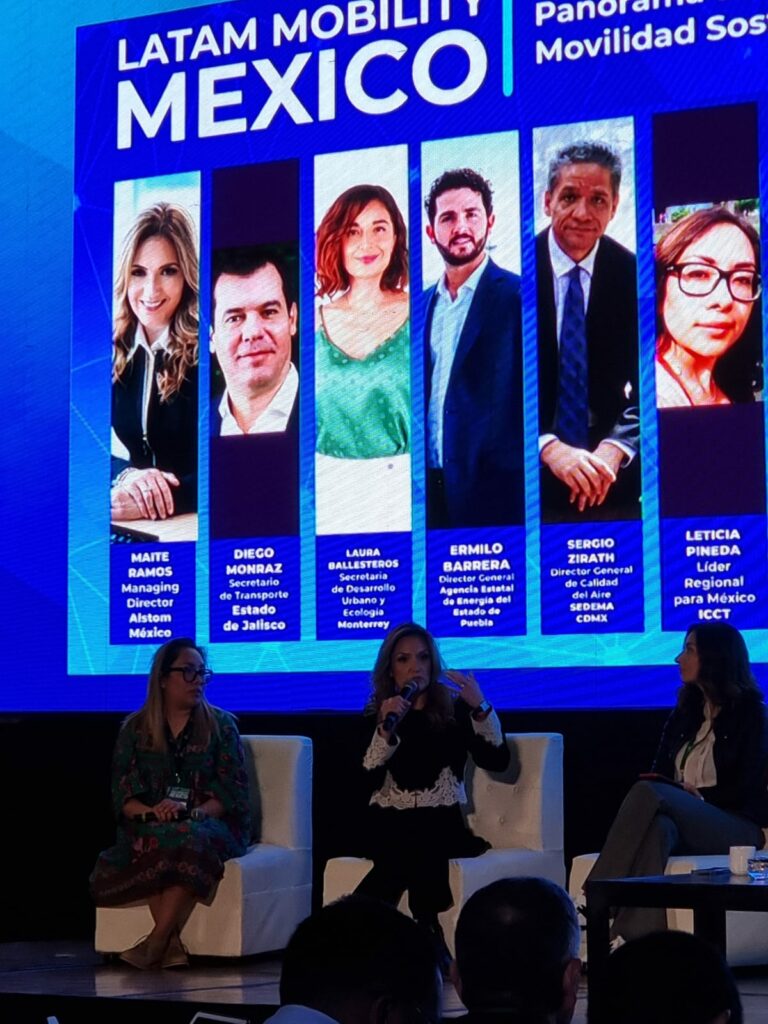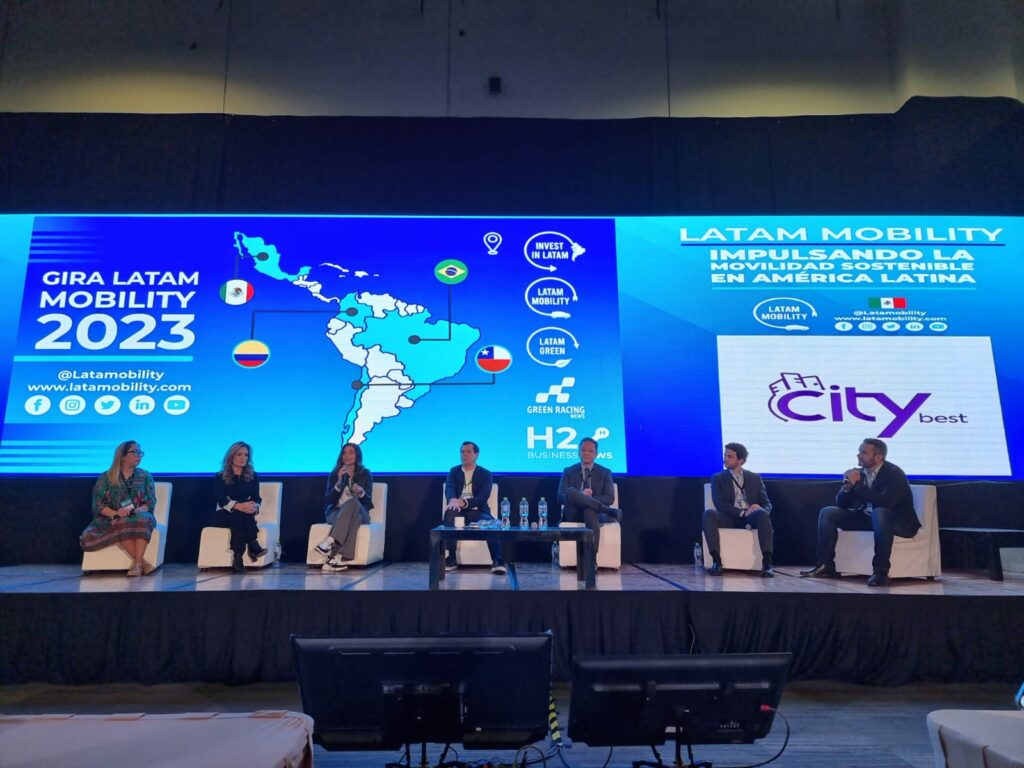Integrating the public transportation system, renewing fleets, strengthening the charging infrastructure and massifying electromobility beyond the big cities are some of the challenges and opportunities that arise in Mexico to promote sustainable mobility.
Given this reality, representatives from the public and private sectors met at the “Latam Mobility: Mexico 2022” panel “Current panorama and perspectives for Sustainable Mobility in Mexico” to offer their points of view on the subject.
The Managing Director of Alstom Mexico, Maite Ramos, highlighted that the company has more than 70 years operating in the country with presence in 14 cities being the backbone of mobility with the production and modernization of trains that contribute to the quality of life of people.
She believes that thinking about all modes of mobility, from pedestrian to train stations, is fundamental to boost sustainable mobility and stressed that everything that is currently being done in railway matters is locally produced and engineered.
Ramos celebrated that there is currently a change of culture not only from governments, but also from the citizens’ point of view regarding the need to massify a new style of mobility that is more efficient and environmentally friendly.
She called on the authorities to design medium and long term plans with investment and research to develop projects that meet the demand for sustainability.

Read also: Geotab Recognized as a Global Leading Commercial Telematics Provider
Public Sector Vision
The government sector has a crucial role to play in changing paradigms to achieve sustainable mobility in Latin American cities. In this sense, authorities from different regions of Mexico participated in the Latam Mobility panel to discuss the current context within their jurisdictions.
The General Director of Air Quality – SEDEMA of Mexico City, Sergio Zirath Hernández Villaseñor, explained that the agency he represents focuses on monitoring air quality through an inventory of emissions to apply public policies with the objective of reducing emissions, taking into account that the automotive sector is responsible for most of the pollution.
“We work with the Ministry of Mobility and the Government of Mexico to improve the mobility and technological conditions of vehicles,” he said.
He pointed out that the road to optimal mobility has important challenges, for which he assures that comprehensive work is needed in urban development with job generation to reduce person/day trips.
He also indicated that we must focus on promoting micro-mobility as a key aspect to decongest cities and emphasized the vision of seeking formulas to make electric vehicles more accessible from an economic point of view.
From Jalisco, the Secretary of Transportation of the state, Diego Monraz, revealed that they have an ambitious decarbonization agenda with a goal of 2030, for which they have executed important projects such as the start-up and completion of Line 3 and the current completion of Line 4 with light trains. Likewise, they included buses that work 100% with batteries to contribute to the implementation of electromobility.
He stressed that the Federal Government must establish a clear agenda that aligns the cities because there are radical differences between the regions.
“It is a moment of opportunity to install a national system of mobility and road safety and that there is a congruent and consistent policy throughout the country to work all in the same line,” said Monraz.
Laura Ballesteros, Monterrey’s Secretary of Sustainable Urban Development, agreed with Monraz on the need for a general policy to promote the mobility of the future.
In that sense, she detailed that from the state a historic milestone was achieved in which 16 metropolitan mayors committed to work together to decarbonize Monterrey’s industrial zone. “This is the change driven from the normative with the authorities,” she said.
Among the achievements that have been conquered in the state, Ballesteros highlighted the adhesion to the Race To Zero program that employs important projects and measures to decarbonize cities by 2050.
They also promote the participation of women in transportation, mobility and cities with the aim of changing paradigms and building a renewable future for new generations.
Energy Transition
Ermilo Barrera Novelo, General Director of the State Energy Agency of the State of Puebla, explained that in 2 years and 8 months of work they have a vision focused on attracting investments in renewable energies to promote the transition in the entire ecosystem, including mobility.
To achieve the objectives, Barrera highlighted three fundamental pillars: infrastructure, financing and planning. “Federal authorities should provide the guidelines towards sustainable mobility. We do nothing with isolated efforts, we need a federal construction with plans in municipalities and states.”
He assured that “clear rules of the game” from the authorities will attract investments and ambitious projects from the private sector to massify electromobility through a solid charging infrastructure and incentives for the acquisition of electric vehicles.
Organizations’ Support
In the midst of the relationship that should exist between the public and private sectors, there is also the support of Non-Governmental Organizations that provide their services in favor of the welfare of citizens.
In this sense, Leticia Pineda, Regional Leader for Mexico of the International Council on Clean Transportation (ICCT), explained that they provide technical assistance to governments on public transportation with the goal of reducing polluting emissions.
“We are pleased with the evolution in Mexico and Latin America, we have projects supporting the metrobus system, supporting campaigns in Mexico City with low emission zones, demand studies for trolleybuses, so we need collaboration from all actors, it is a transition that we will only achieve if we work together,” she said.
She pointed out that among the policies to advance in decarbonization there must be guidelines to remove combustion vehicles, establish energy efficiency standards due to the lag of environmental regulations and align incentives that generate confidence in new technologies.
She considers that public-private alliances are necessary, and celebrated that the central government is opening important spaces where authorities and business representatives converge.




